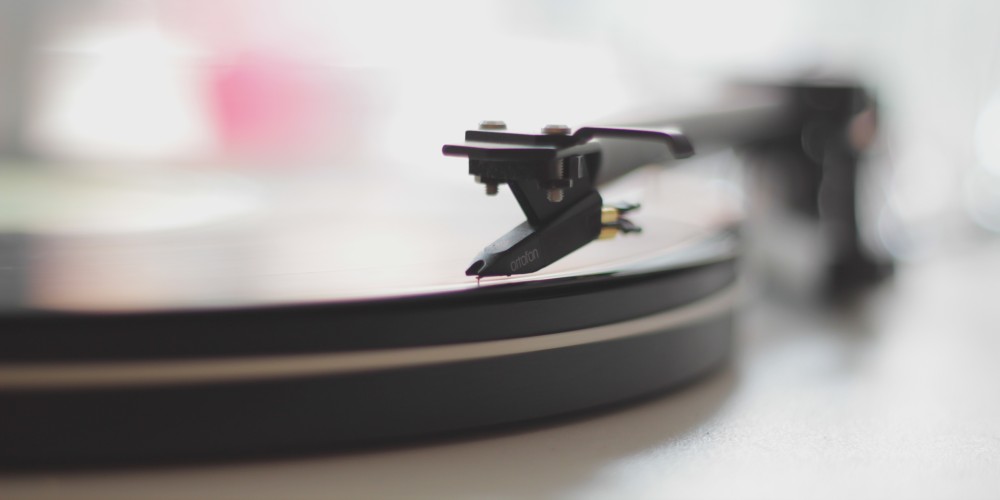Staying analogue is as important as going digital

Digital transformation is on everyone’s lips these days. If you’re ‘analogue’ you’re finished: a dinosaur awaiting imminent extinction.
Or are you?
The e-book was supposed to kill off the printed book. Did it? No. E-books took off rapidly, and then levelled out in 2014. Sales of physical books have been rising for several years now. Estimates suggest that global e-book sales will account for less than a quarter of overall turnover by 2020.
How could this happen? E-books are so very handy, are they not? You download them in an instant, and hundreds can be stored on your e-reader or smartphone app? What’s wrong with that? Nothing. But printed books also have their own unique attributes that are very important to many people. Things like: the tactile joy of handling a nicely produced book; or the individual character that beautiful covers and elegant typefaces bestow to print books.
E-books also come with inherent disadvantages. Dedicated e-readers are mostly ugly lumps of plastic. E-book formatting is woeful and devoid of aesthetic charm. And people are increasingly suffering from screen fatigue when too much of their lives shrink into their mobile devices. So E-books needed to be way cheaper than printed books in order to launch a meaningful assault. They weren’t, and they didn’t.
Make no mistake, though: the advent of e-books was very good for the publishing industry. Traditional players received a much-needed wake-up call. Prices had to stay competitive. Book design was freshened up. First-time authors found a route to market that did not require pleading with agents and publishers. Print-on-demand technology flourished. And so the two formats will sit side-by-side, each forcing the other to get better.
In the music industry, MP3 players killed off CDs; and now subscription streaming music is in turn killing off the MP3 player and paid downloads. But there’s an exception: vinyl LPs. Remember them? You probably don’t. A large black disc with grooves that requires a moving needle to produce music, through separate speakers. Bulky, non-portable, fragile…very analogue indeed. Should be dead, right?
It isn’t. Vinyl records were almost stone-dead in 2006; but sales have grown (especially in the UK) for quite a while now, and 2016 saw a particular resurgence: late in the year sales even exceeded those of digital downloads for the first time ever. Why should this happen, when these days you can keep your music on the cloud and only stream or download what you need, when and where you need it?
Again, old-fashioned records play to old-fashioned but timeless human needs. Don’t imagine this is a bunch of oldies fighting back; teenagers are also now intrigued by vinyl. They like the sit-back process of playing a cherished record; they like the crisp, expansive sound; they like the beautiful sleeve covers; they like the fact that a physical collection can be treasured and owned and shown to friends.
What this tells us is that even as new digital advancements gust through every product and industry, the analogue world is also not going anywhere. We remain very human consumers, and most humans have sempiternal needs. We need to own things, not just rent them; we need to feel individually special and important; we need to belong to groups; we need to feel connected and appreciated; we need to feel growth and advancement.
A thinking leader does not do ‘digital’ blindly and obsessively; she relates it to the human needs at the centre of the consumption decision. People don’t just buy things because of their functional features; they buy emotions. As I have always asked my clients: do your customers actually buy what you think you’re selling? Or something else altogether?
Most people sell things that they imagine fulfil a need or solve a problem in their customers’ lives. Yet the customer’s actual purchase decision may be based on something quite different, and invisible. People need to read books and listen to music, so if you go digital and make those things very cheap and easy to access, you win, right? Right, and wrong. If people are also buying status, memories, beauty, respect or affection, then price and convenience may not matter to them as much.
So how should you blend analogue with digital as you consider the future of your business? I’ll tell you next week. See you right here.
(Sunday Nation, 21 May 2017)

Buy Sunny Bindra's new book
The X in CX
here »
Popular Posts
- Make this your year of being boringJanuary 4, 2026
- My books of the yearDecember 14, 2025
- Confessions of an explaining personDecember 7, 2025
- Here’s why you should become foolishNovember 30, 2025
- How to listen, really listenNovember 16, 2025















